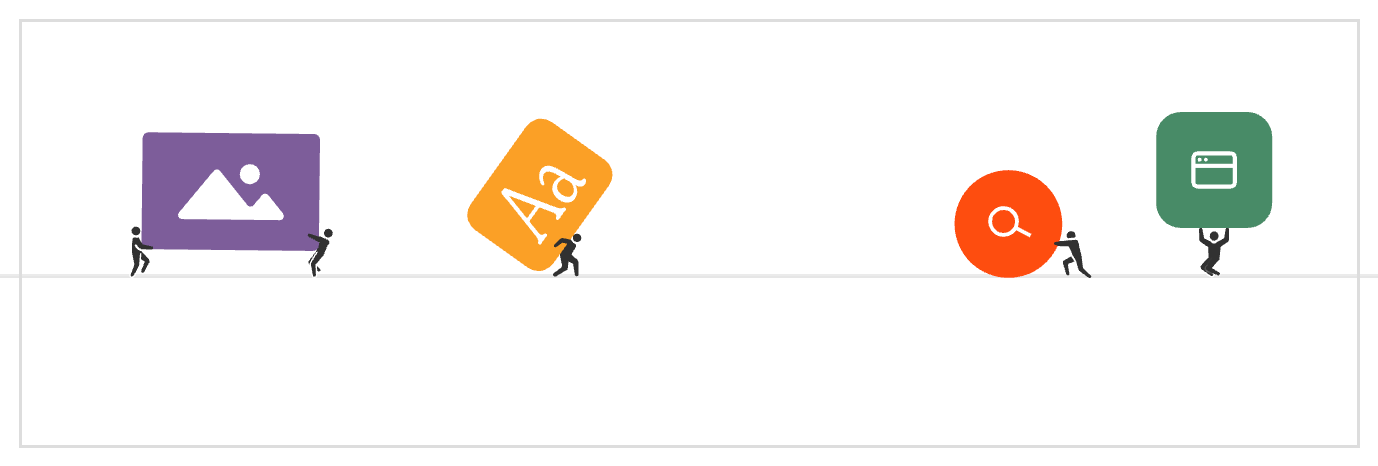Good Morning from San Francisco,
Americans still use AI assistants like it's 2018. Seven years of upgrades from Google, Amazon, and Apple haven't budged user behavior one bit.
Fresh YouGov data shows the same pattern: weather checks, music, basic questions. Advanced features? Ignored. Smart home control hits just 19% adoption. The reliability gap creates a reinforcement loop that billion-dollar AI investments can't crack.
Meanwhile, Meta just split its AI labs into four teams. That's the fourth restructuring in six months. The company abandoned its Behemoth model, offers nine-figure packages to retain talent, and keeps losing researchers anyway.
Both stories reveal the same truth: throwing money at AI problems doesn't guarantee solutions stick.
Stay curious,
Marcus Schuler
Seven-year usage plateau defies tech investment

Fresh YouGov data reveals Americans use digital assistants exactly as they did in 2018, despite billions invested in AI upgrades by Google, Amazon, and Apple. The usage pattern remains locked: weather checks (59%), music (51%), quick answers (47%), and timers (40%).
Advanced features see minimal adoption—smart home control reaches just 19% of users, shopping 14%, third-party apps 9%. The core barrier hasn't shifted: 27% say assistants don't understand requests, 12% cite accuracy issues, 10% find them less intelligent than expected.
From the companies' perspective, this represents a platform strategy crisis. From users' view, it's rational behavior—why attempt complex tasks when simple ones often fail? The reliability gap creates a reinforcement loop that technological advancement alone can't break.
Users want execution over innovation. Top requests are better speech recognition (30%) and complex question handling (30%)—reliability improvements, not new capabilities.
Why this matters:
• Innovation resistance precedent: Consumer behavior can remain static for years despite massive technological investment, challenging AI adoption timelines across sectors.
• Platform strategy recalibration: If assistants stay basic voice remotes, the "ambient computing" thesis that underpins smart home and productivity strategies needs fundamental revision.

AI Image of the Day

Prompt:
Minimalist Japanese art, with flowers in vases, clearly visible brushstrokes and textures, soft tones of fruit smoothies, pastel colors and neutral shapes.
Meta divides ai labs into four teams

Meta announced Tuesday it's splitting Superintelligence Labs into four distinct units—research, infrastructure, products, and frontier models—marking the fourth AI reorganization in six months. Chief AI Officer Alexandr Wang will lead the new TBD Lab focused on cutting-edge model development.
From Meta's perspective, the constant restructuring represents necessary adaptation to rapidly evolving AI competition. From departing researchers' view, it signals organizational dysfunction that undermines long-term projects. Both readings appear valid given the evidence.
Key indicators suggest deeper challenges: Meta abandoned its previous frontier model, Behemoth, after disappointing performance tests. The company offered nine-figure compensation packages yet continues losing talent—Joelle Pineau left for Cohere, Angela Fan joined OpenAI. Meta is now considering closed models rather than its traditional open-source approach and exploring third-party partnerships.
The strategic reversals, combined with projected $72 billion in 2025 spending, indicate urgency rather than confidence in current approaches.
Why this matters:
• Repeated organizational restructuring creates execution taxes that compound even when supported by massive capital deployment
• Strategic philosophy reversals during critical development phases signal uncertainty about fundamental competitive positioning

🧰 AI Toolbox
How to Build a Professional Website in 30 Seconds

Durable is an AI-powered website builder that creates complete business websites with content, images, and contact forms in under a minute. Simply enter your business details and location, and the AI generates a fully functional, SEO-optimized website that you can customize without any coding skills.
Tutorial:
- Go to the Durable website
- Click "Generate your website" and enter your business type and location
- The AI creates a complete website with content, images, and contact forms in 30 seconds
- Use the drag-and-drop editor to customize colors, fonts, and layouts
- Add or remove pages for services, portfolios, or blog content
- Activate built-in SEO tools and CRM features to manage leads
- Publish your professional website and start attracting customers immediately
URL: https://durable.co/
Better prompting...
Today: Summary in under 100 words.
Write an executive summary of the attached memo in under 100 words. Structure your summary to include:
- Key findings or main points (2-3 most critical items)
- Actionable recommendations using direct command verbs (e.g., "implement," "review," "approve," "investigate")
- Business impact or implications
Format: Use bullet points or short paragraphs for clarity. Write for senior leadership who need to make quick decisions.
If no memo is attached: Request the document before proceeding.
AI & Tech News
Musk's Grok publishes 370,000 user chats without warning
Elon Musk's xAI has published over 370,000 Grok chatbot conversations to Google's search index without warning users that clicking "share" makes their chats publicly searchable, including conversations with passwords, medical questions, and instructions for making bombs. The exposure comes months after Musk mocked OpenAI for a similar privacy breach that the company quickly fixed.
Manus reaches $90 million annual sales, challenging OpenAI
Manus, the Chinese-founded AI agent company now based in Singapore, reported hitting a $90 million annual revenue run rate through subscription fees ranging from $19 to $199 per month. The milestone puts Manus among the fastest-growing AI companies to approach the $100 million benchmark that traditionally took software companies three to five years to reach.
Baidu revenue drops 4% as ad spending weakens in China
Baidu reported second-quarter revenue fell 4% to 32.71 billion yuan as its core advertising business dropped 15% while AI cloud services surged 34%. The split reflects how China's economic uncertainty forces companies to cut marketing budgets while doubling down on technology infrastructure investments.
DeepSeek's V3.1 matches frontier AI at fraction of cost
DeepSeek quietly released its 685-billion parameter V3.1 model Tuesday, delivering frontier AI performance at $1.01 per task versus $70 for equivalent proprietary systems. The open-weight release forces closed-model leaders to justify premium pricing with enterprise guarantees rather than raw capability alone.
Microsoft puts AI directly into Excel spreadsheet cells
Microsoft rolled out a new COPILOT function to Excel Beta Channel users that lets them use natural language prompts directly within spreadsheet cells to categorize data, summarize feedback, and reference other cell values. The function approach makes AI results update automatically when data changes, turning conversational AI into a native Excel tool rather than an external add-on.
Canva employee share sale values company at $42 billion
Canva launched an employee stock sale at a $42 billion valuation, jumping over 30% from its $32 billion value in 2024 as investors including Fidelity and JPMorgan bought shares from staff. The oversubscribed sale moves Canva closer to a public offering while intensifying competition with Adobe and newly public Figma for AI-powered creative software users.
Musk shelves third party, eyes Vance backing instead
Elon Musk is stepping back from his July pledge to start the America Party, with his associates canceling a late-July organizing call and telling allies he wants to focus on his companies rather than risk alienating Republicans. The shift preserves Musk's $300 million political network for a potential JD Vance 2028 campaign while removing a major threat to Republican unity ahead of the midterms.
Silicon Valley panics over NYC socialist while locals stay calm
Silicon Valley leaders voiced alarm online after Democratic Socialist Zohran Mamdani won NYC's June 24 mayoral primary, while 200 local tech executives who met him July 16 reported a pragmatic candidate focused on city services. The geographic split reveals how proximity produces nuanced political risk assessment while algorithmic feeds reward maximum panic across tech networks.
Oracle's AI bet drives negative cash flow for first time since 1990
Oracle recorded negative annual cash flow for the first time since 1990 while building massive AI infrastructure, including plans to spend over $1 billion yearly just powering one Texas data center with gas generators. The spending reflects Oracle's transformation from cloud skeptic to essential AI infrastructure provider for OpenAI, Nvidia, and xAI—making chairman Larry Ellison the world's second-richest person after dismissing cloud computing as "complete gibberish" in 2008.
Runway's AI festival challenges assumptions about machine creativity
A writer attended the 2025 AI Film Festival's 10-film program in New York, backed by AI company Runway, to test whether artificial intelligence can actually have artistic ideas or values beyond mechanical execution. The festival's tour of prestigious IMAX venues represents a coordinated push to legitimize AI filmmaking tools that critics dismiss as producing mere "slop."
EliseAI raises $250 million at $2.2 billion valuation
EliseAI raised $250 million in Andreessen Horowitz-led Series E funding at a $2.2 billion valuation, doubling its worth from a year ago as the company automates customer service for housing and healthcare industries. The oversubscribed round signals investor appetite for vertical AI solutions that solve industry-specific problems rather than building general-purpose models, with EliseAI now processing operations for one in eight U.S. apartments.
🚀 AI Profiles: The Companies Defining Tomorrow

EliseAI: The AI That Actually Does the Work
EliseAI builds AI agents that don't just chat—they complete tasks. The company turns customer requests into closed tickets across housing and healthcare, handling everything from apartment tours to medical appointments.
• The Founders
Minna Song (MIT) and Stoyan Stoyanov (Cambridge) founded the company as MeetElise in 2017 in NYC. They spotted a simple problem: property managers lose leads when they don't answer fast. Now ~300 employees strong, planning to double headcount across New York, SF, Boston, and Chicago.
• The Product
End-to-end AI agents that integrate with systems of record. In housing: leasing, maintenance, renewals, delinquency management. In healthcare: scheduling, intake, call handling. The magic isn't the chat—it's the completion. Books tours, creates work orders, updates calendars, writes back to property management systems and EHRs. Works across web, SMS, email, voice in 50+ languages.
• The Competition
Housing: Battles Entrata, AppFolio, RealPage on the platform side. Outflanks point solutions like LeaseHawk and BetterBot on depth. Healthcare: Faces Notable Health, Syllable, Hyro. Edge comes from vertical focus over horizontal chat.
• Financing
$390M+ raised total. Latest Series E: $250M led by a16z at $2.2B valuation (August 2025). Previous backers include Sapphire Ventures, Point72, Koch Real Estate. Hit $100M ARR this year.
• The Future ⭐⭐⭐⭐⭐
Housing dominance is real—serves 60% of top rental operators, powers one in eight US apartments. 🏠 Healthcare expansion is the bigger bet. If they crack EHR integrations like they did property systems, this becomes much larger. The funding buys time to prove vertical depth beats chatbot breadth.









